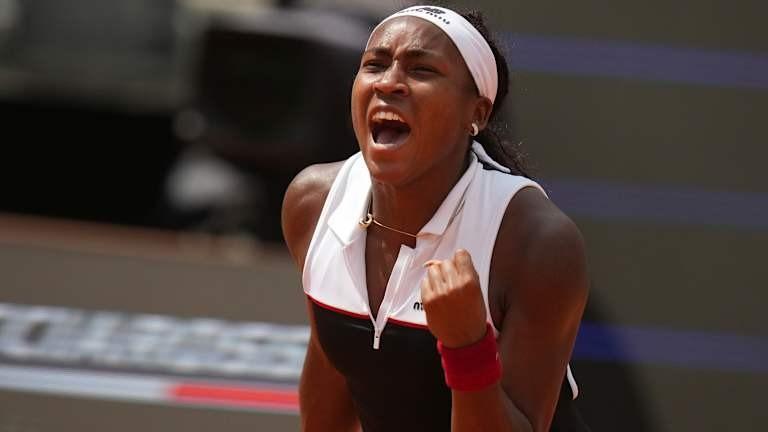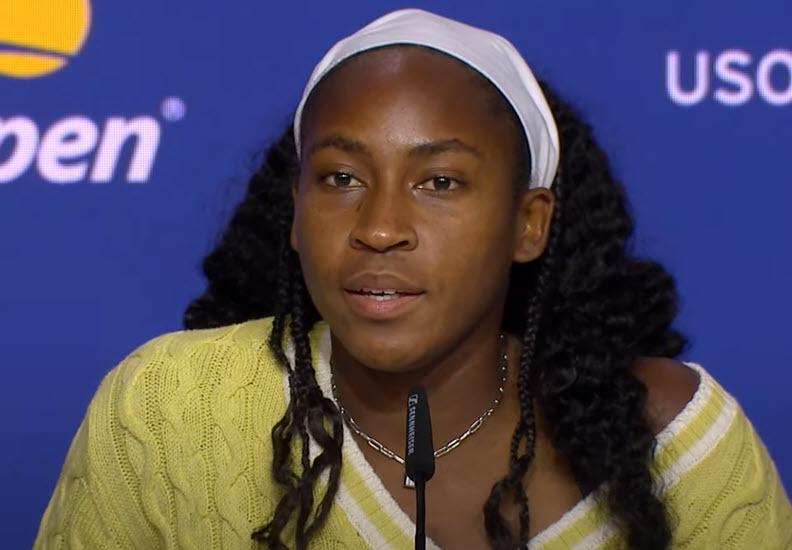In the world of tennis, rivalries are commonplace, but rarely do we see confrontations as explosive as the one that recently pitted Aryna Sabalenka against Coco Gauff. During a post-match interview, Sabalenka made a provocative statement, calling Gauff a “black-skinned monkey,” a phrase that left fans speechless. No one expected Coco Gauff’s response: with imperturbable calm and in just 17 words, she turned the spotlight on herself and revealed more about Sabalenka than years of media coverage had allowed.

Tensions between the two players had been building for months, but this recent confrontation took the rivalry to a new level. Sabalenka, known for her aggressive style and sometimes controversial comments, couldn’t help but make a derogatory remark about Gauff’s ethnicity. But instead of reacting with anger or rage, Gauff displayed a maturity that surprised everyone. With incredible composure, she simply replied, “It’s not what other people say that defines me, but what I do on the court.”
Those 17 words resonated around the world, not only for their calmness, but also for the depth of their message. Gauff, at just 19, displayed exceptional maturity beyond her years, disarming Sabalenka with her response, which shifted the focus from the racist comments to her own career and accomplishments. More than a simple defense, the response was a statement of empowerment and a tacit denunciation of the toxic culture that persists in some quarters of the sport.
What was truly revealing about this exchange was not only Gauff’s response, but also her comments about Sabalenka. Over the years, the Belarusian had developed an image of a strong and uninhibited woman, but this incident revealed a darker side of her personality. Sabalenka, who has struggled with her past and criticism, still appears to be overcoming some prejudices, as her comments demonstrate.
What many didn’t realize is that the rivalry between Gauff and Sabalenka extends beyond the court. Sabalenka, who has previously spoken about her personal struggles and how she handles pressure, still appears to have a complex relationship with her identity and how others perceive her. This incident illustrates how, despite their success, some athletes still struggle with their own demons, which can influence their behavior toward others.
In this context, Coco Gauff’s reaction was not only an act of self-defense, but a lesson for all. Sometimes the most powerful words are those spoken calmly and clearly, and in this case, Gauff demonstrated that true strength lies in understanding and self-control.
This event allowed everyone to reflect on the impact of words and the fact that, in sport as in life, the most effective responses are not always the strongest. Coco Gauff not only responded intelligently, but also sent a clear message about the importance of fairness and respect in sport and beyond.
For her part, Aryna Sabalenka, aware of the impact of her comment, had to face the consequences. This shows that tennis is not only a sport of physical skill, but also a playground for ethics, respect, and integrity.





